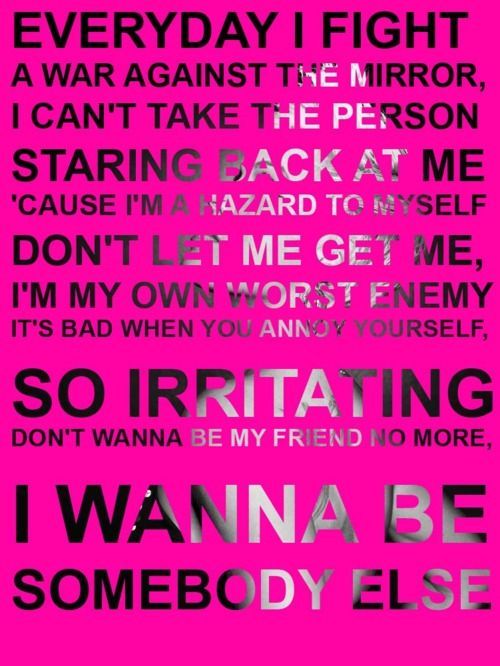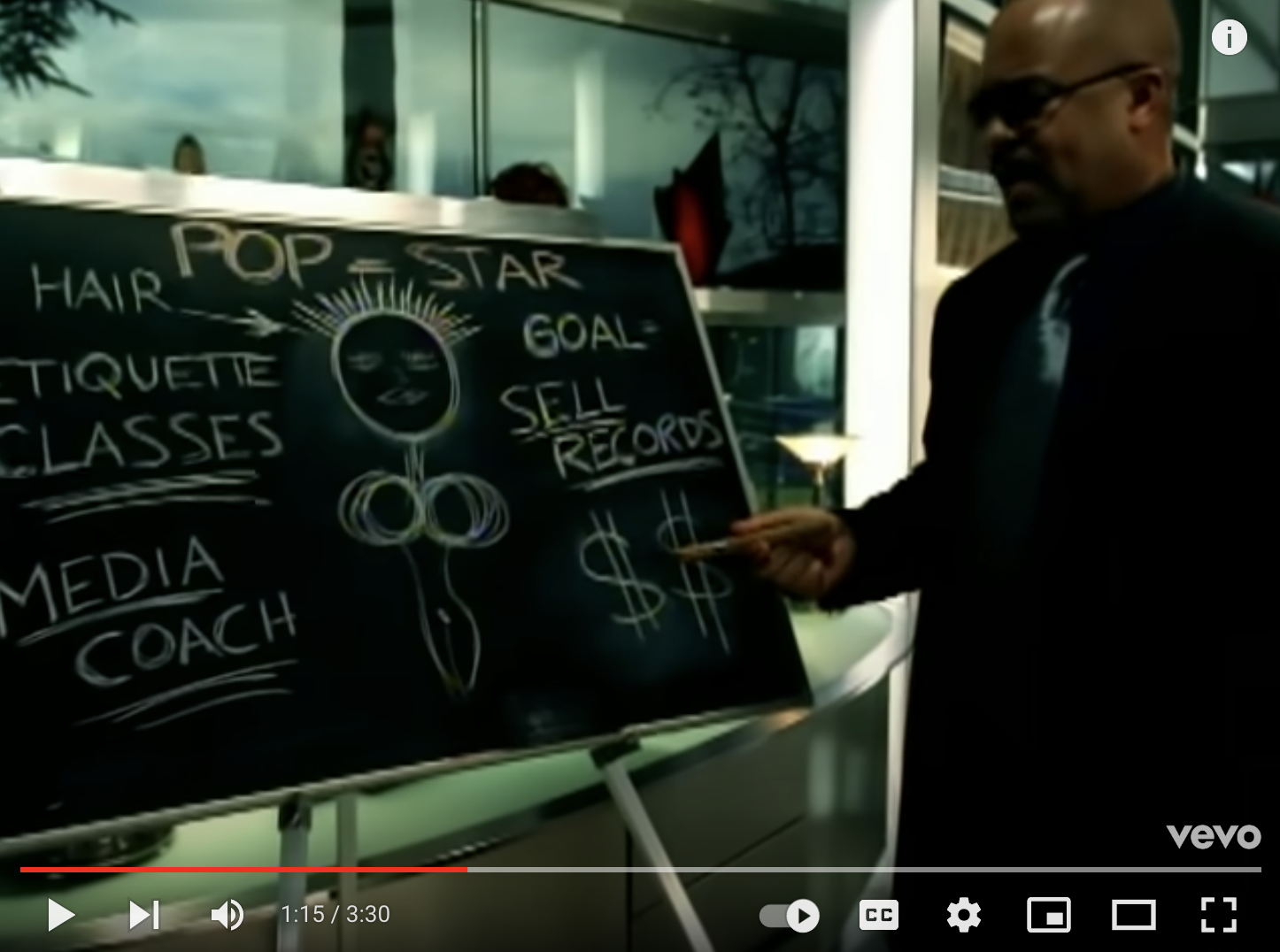Don't Let Me Get Me

I'm slightly steering away from gender identity - while I think gender identity is always present, I'm going to focus a bit more on the cultural nor or popular narrative within the song Don't Let Me Get Me by Pink (Alecia Moore). The song was released as a single off of her second album Missundaztood in 2002, with writing credits to both Pink and Dallas Austin. While there are many famous Pink songs, this one has stood out to me since I first heard it in the early 2000s because it felt so personal and vulnerable at a time when music was not. In watching interviews and reading about this album, Pink was dissatisfied with not having creative control over her first album and felt she was misrepresented and misunderstood. She ended up living with Linda Perry (4 Non-blondes) and they worked through Pink's vulnerabilities to produce an album that truly felt different (to me) than anything at the time (Pink 7).
The first set of lyrics is in the header image reveals self hate in such a raw and honest way. While this doesn't directly speak about gender identity, the impact of her lyrics felt so strong back then and even now because I think until COVID, it didn't feel like we could talk about self hate or mental health. As a female also, I think there has always been pressure to hold it all in - self doubt, frustration, self-hate, discomfort, etc. The music video, done by Dave Meyers, shows Pink in high school with one vivid scene of her in the locker room punching a mirror which shows a reflection of her true, unhappy self. It also shows the other teen girls and the PE teacher treating her poorly for being unhappy (even before she punched the mirror). This message is reinforcing the norm that we should conform and be happy and if not, there is something very wrong with us. I think all genders and non-gendered individuals can relate to this messaging.
"L.A. told me, 'You'll be a pop star / All you have to change is everything you are.' / Tired of being compared to damn Britney Spears / She's so pretty, that just ain't me".

This next set of lyrics show above drive home the expectation that girl pop stars are supposed to fit into a specific box for commercial success - and I think it is relatable to non-musicians in the same light. We, females, are supposed to look a certain way that the mainstream industry wants us to, and if not, there is a problem with us (connecting to the self-hate lyrics as well - if I am not a certain way/look, there's something wrong with me).
In the music video they show how the music executive shows a drawing of a girl stick figure with big boobs and the goal of selling millions - the message saying she has to change herself into this image in order to be successful. Throughout the video she continues to come into her own, taking control over her narrative and in the end is seen on a magazine cover how she wants to be seen and performing at her high school. It also shows her face changing into other faces of people continuing the lyrics - which I interpret as an attempt to be inclusive of all people - that we are who we are.
Works Cited
"Pink: Behind the Music". Behind the Music. Season 11. September 17, 2009. VH1.